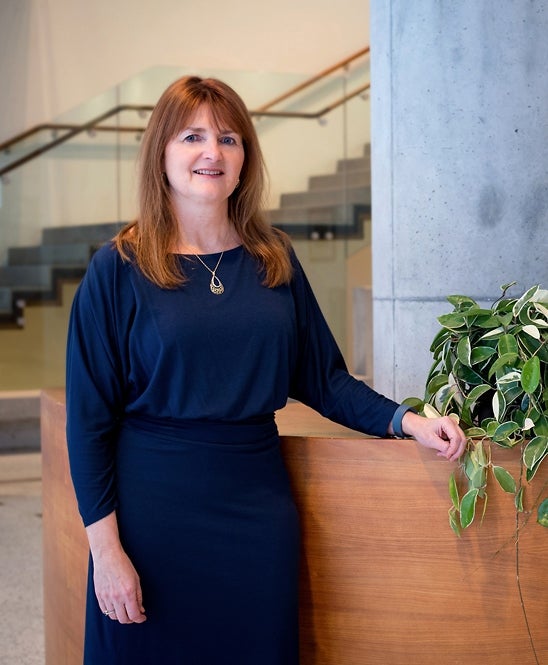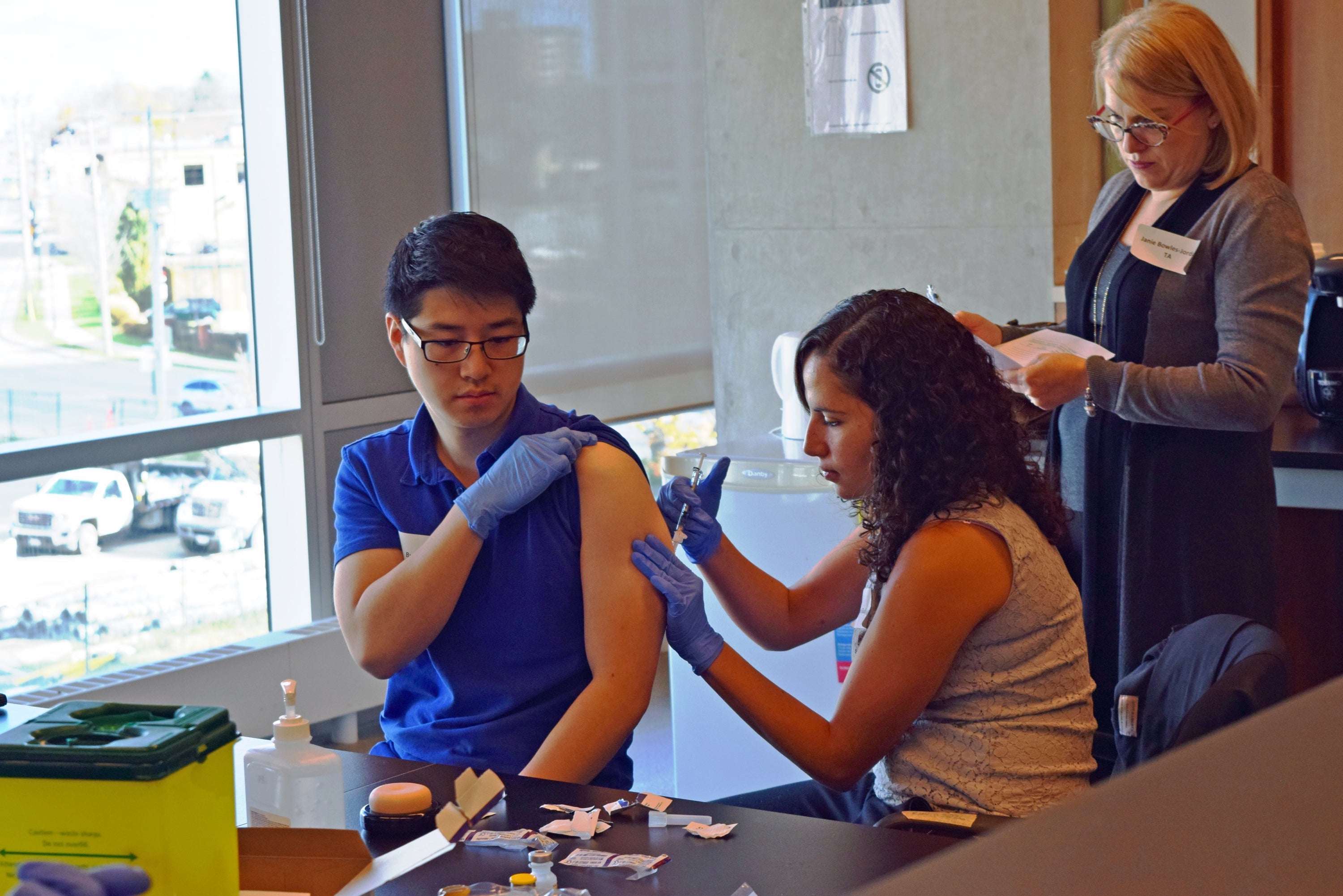
As debates around vaccination rage on, flu immunization rates in Ontario have actually risen by half a million doses since 2012, thanks to pharmacists.
Pharmacists are key players in immunization efforts, according to experts from Waterloo’s School of Pharmacy in the Faculty of Science.
Professor Nancy Waite (pictured left) and Assistant Professor Sherilyn Houle co-lead the “Pharmacists as Immunizers” project under the Ontario Pharmacy Research Collaboration (OPEN), funded by the Ontario government’s Health System Research Fund.
The multi-institutional research project examines uptake of vaccinations in pharmacies, exploring the impact that the service has on patients and pharmacists.
The convenience of pharmacies makes all the difference
We call pharmacists ‘one of the most accessible healthcare professionals'. Enabling pharmacists to give vaccines is changing the way that we conceptualize pharmacies: pharmacies are evolving into a one-stop health destination that can meet a variety of patient needs.
In 2012, Ontario’s pharmacists’ scope of practice expanded to include flu vaccination and extension of refills for common medications like blood-pressure drugs. In the most recent flu season 2014/15, Ontario pharmacists administered nearly one million doses. Given that pharmacists a couple of years ago vaccinated a quarter of a million patients in a flu season, this is a clear sign of an upward trend in pharmacist-administered vaccinations.

Pharmacy bridging students in an injection training workshop. As part of the expanded scope of practice, pharmacists are now trained to give flu vaccines.
To understand the demographics, regional differences, attitudes, and beliefs that influence immunization rates, OPEN is gathering data from a variety of sources, including administrative health records, patient and pharmacist surveys and focus groups.
For example, OPEN found that pharmacists provide easy access to vaccinations for busy working adults. Patients who receive vaccinations in a pharmacy instead of at a doctor’s office tend to be younger and live in higher income neighbourhoods. They’ve also found that patients who receive their flu vaccines from a pharmacist are highly satisfied with the experience. Waite and Houle see it as a matter of access, and applaud the increased convenience as a major patient benefit.
Taking vaccinations one step further
Currently, Ontario’s pharmacists can only vaccinate against influenza, but Waite, Houle, and their colleagues hope to see pharmacists providing vaccines against shingles and other conditions, following the precedent set in Alberta and British Columbia. In Ontario, there is already interest in expanding pharmacist-administered vaccinations to include travel immunizations, and OPEN has been invited by Health Minister Eric Hoskins to join a working group for implementing this expansion.
OPEN has also observed that pharmacists are in a unique position to combat ‘vaccine hesitancy’, a term for the apprehensions that result in patients delaying or never receiving a vaccine. The team aims to explore ways that pharmacists can help overcome this hesitation and promote increased vaccination.
Houle also notes that pharmacists are uniquely positioned to reach patient populations that are especially vulnerable to influenza.
Every day, pharmacists are in contact with caregivers of children and with seniors – these are groups that would especially benefit from flu vaccinations. The caregivers also may see themselves as too busy for a flu shot. A pharmacist immunizer can help overcome these barriers, especially as they take on an advocacy role with these patients.
Eventually, pharmacy students in Ontario may also be able to provide vaccines, as they do in all other provinces where pharmacists can vaccinate. This helps increase the number of people who can be vaccinated and gives them experience vaccinating while under the supervision of a pharmacist certified to immunize.
More information on the “Pharmacists as Immunizers” project is available on the OPEN website.